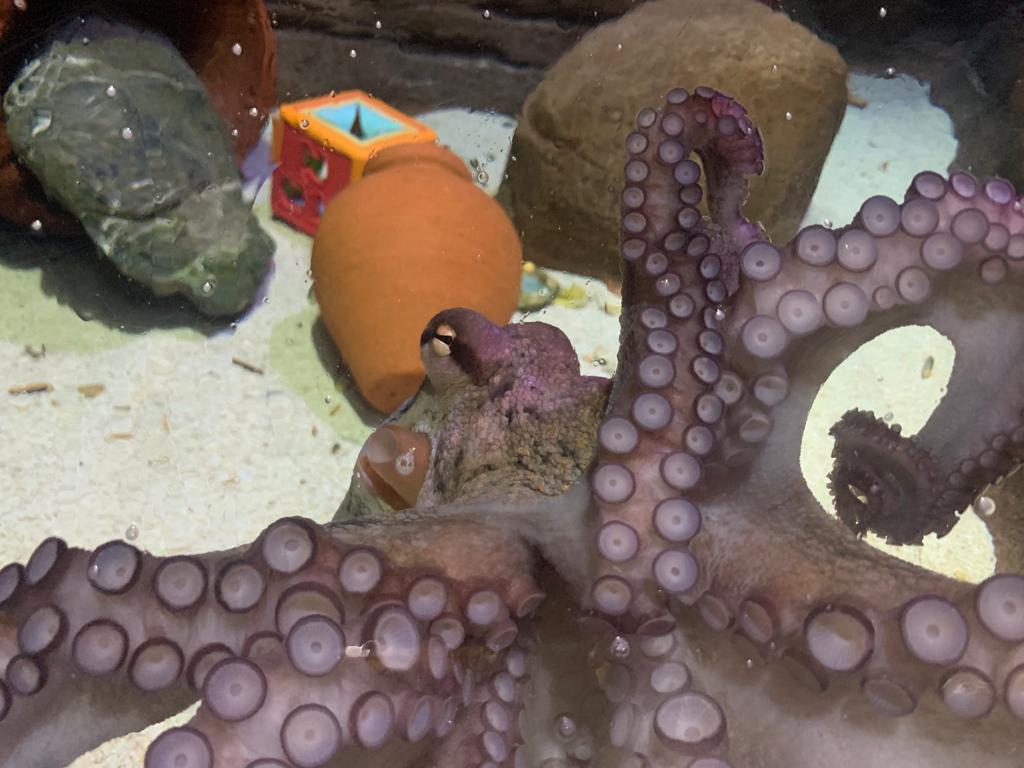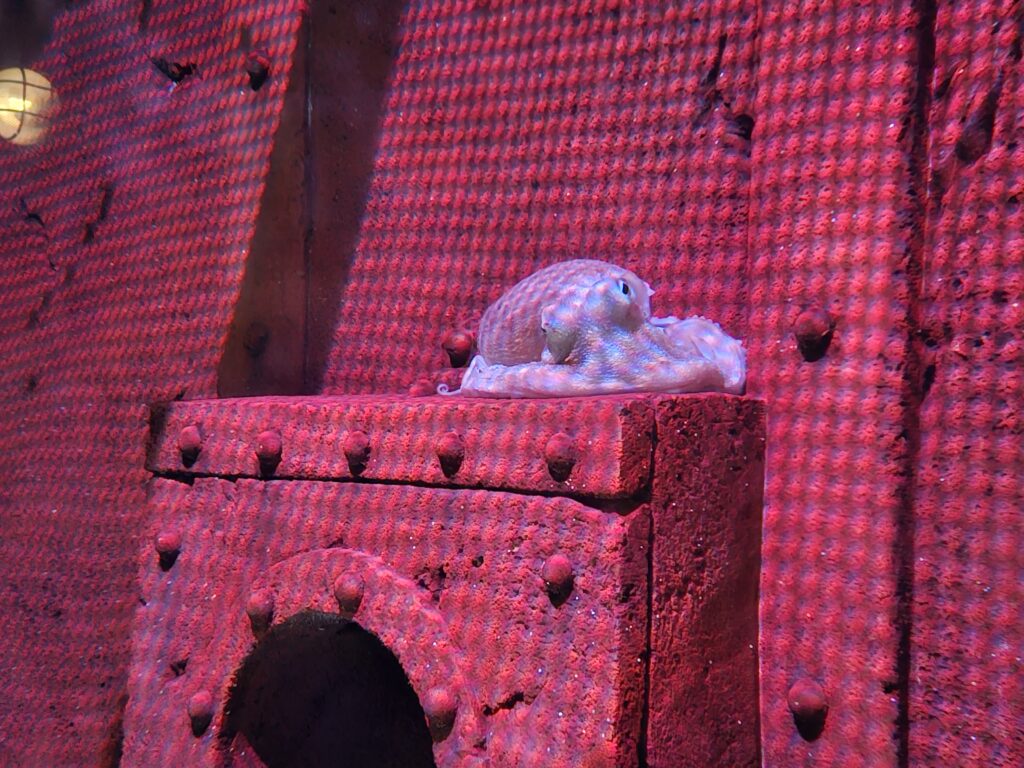Our new Common Octopus, Athena, has been settling into her new home. The common Octopus is an intelligent and curious creature, and today is a day to celebrate that!
World Octopus Day, celebrated every year on October 8th, is a special occasion dedicated to one of the most fascinating creatures on our planet: the octopus. These intelligent and remarkably adaptable cephalopods have captured the imagination of scientists, marine enthusiasts, and the general public alike. In this blog, we’ll dive into the world of octopuses, exploring their incredible abilities, evolutionary history, and their vital role in marine ecosystems.
Octopuses belong to the class Cephalopoda, a group of marine animals known for their distinctive characteristics, including soft bodies, bilateral symmetry, and highly developed intelligence. While there are over 300 species of octopuses, they share several common traits that set them apart in the animal kingdom.

Intelligent Problem Solvers
Octopuses are renowned for their intelligence, problem-solving abilities, and capacity to learn. They have complex nervous systems and exhibit behaviours such as using tools, opening jars, and even navigating mazes in laboratory settings.
Watch this video to learn more!
Masters of Camouflage
Octopuses are masters of disguise, capable of changing their skin colour, texture, and patterns to blend seamlessly with their surroundings. This remarkable camouflage skill helps them hide from predators and ambush prey.
Incredible Adaptability
Octopuses are highly adaptable creatures, inhabiting various marine environments, from shallow coastal waters to the abyssal depths of the ocean. Their adaptability and flexibility make them formidable survivors.
Dexterity
With their eight flexible arms, octopuses possess remarkable dexterity. Each arm is lined with suckers that can grasp, manipulate objects, and capture prey with incredible precision.

History of the Octopus
These intelligent creatures are believed to have diverged from their common ancestor with squids and cuttlefish over 300 million years ago. Fossils of ancient octopuses are rare due to their soft bodies, making it challenging to trace their evolutionary lineage accurately. Nonetheless, researchers continue to uncover clues about their evolutionary history through genetic studies and comparative anatomy.
Ecological Significance
Octopuses play a crucial role in marine ecosystems. They are opportunistic predators, feeding on a wide range of marine organisms, including crabs and fish. By controlling prey populations, octopuses help maintain the balance within their ecosystems. Moreover, their ecological importance extends to being prey themselves, serving as a food source for various marine predators.
World Octopus Day is a moment to celebrate the incredible diversity, intelligence, and adaptability of these enigmatic cephalopods. If you would like to see an Octopus with your very own eyes, come and pay a visit to Athena, our Common Octopus!
